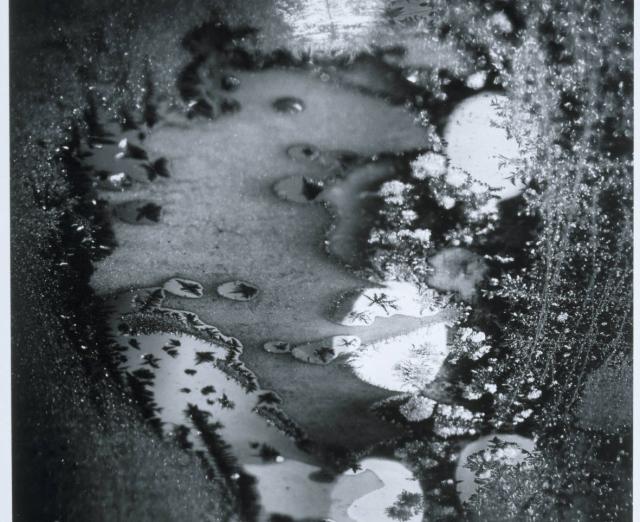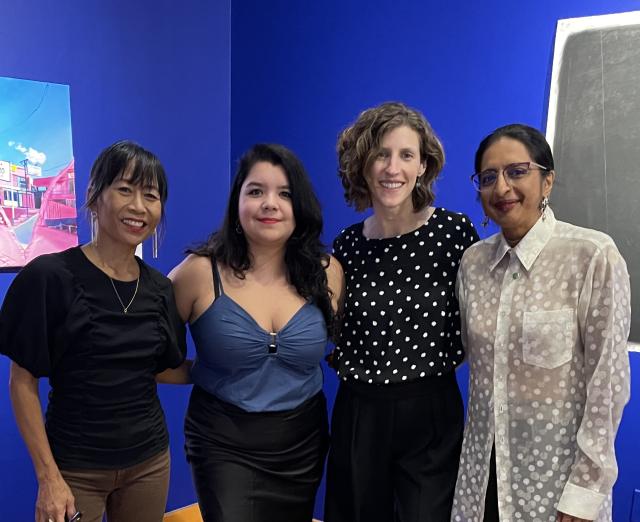Nature|Spirit|Art: Gratitude in Every Step
Education & Community Engagement
Manager of Art + Wellness and Family Programs Donna Jonte shares her experience at the second session of the NatureISpiritIArt workshop on art and climate change.
The second session of the five-week course Nature|Spirit|Art focused on our gratitude to the Earth as an essential component of climate resilience and a practice that helps us connect to artworks through an ecocritical lens. The evening’s agenda included a close look at Henri Matisse’s Interior with Egyptian Curtain, an outdoor meditative walk, and art-making in response to the walk.
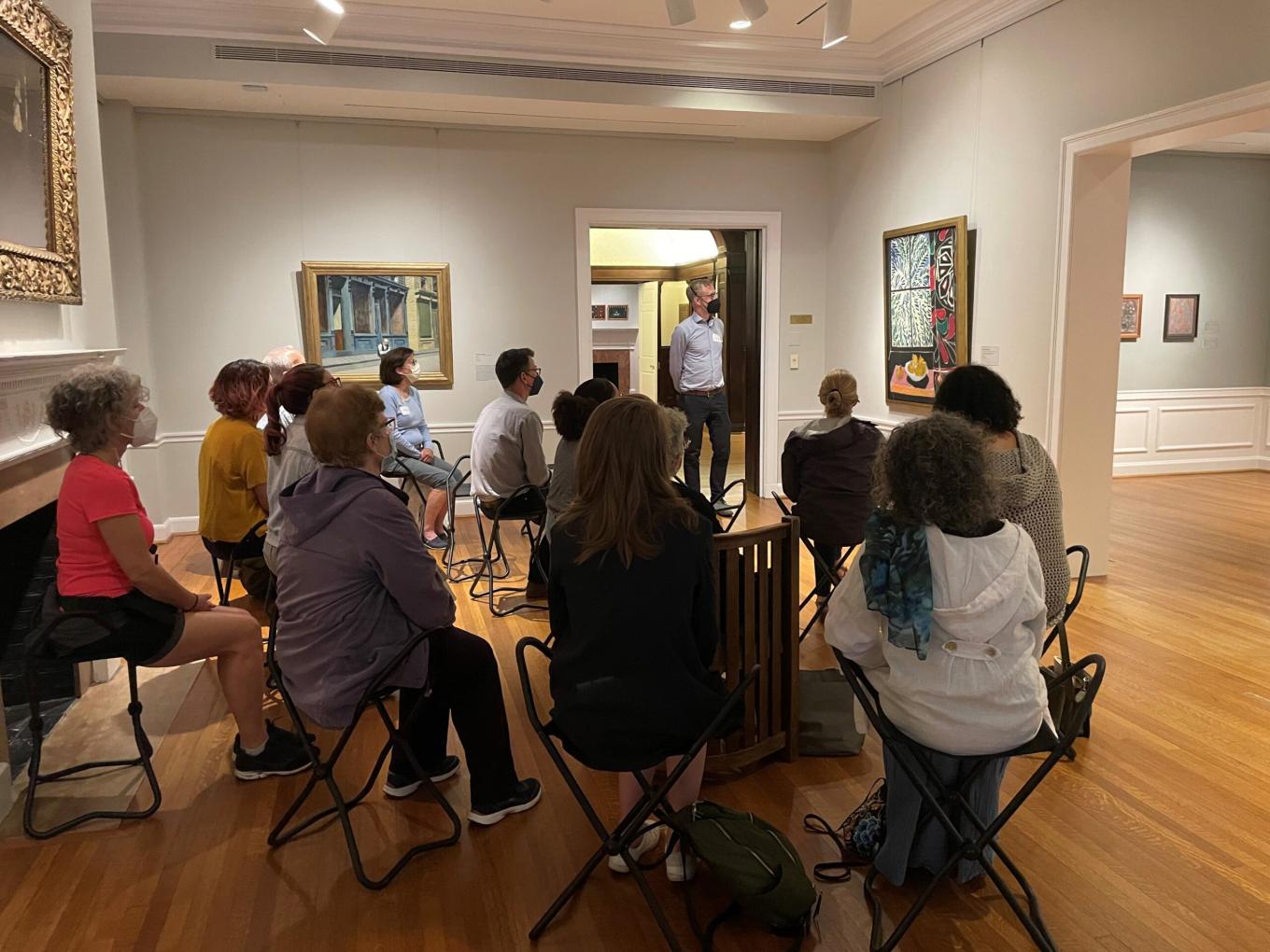
Discussing Henri Matisse’s Interior with Egyptian Curtain, 1948, in the galleries
A dramatic storm drenched Dupont Circle just before the class began, sweeping away the humid, oppressive air, leaving droplets, puddles, wet leaves, and a few downed branches. We prepared for the silent, independent walk first in the gallery, exploring the ways Matisse brings the outside in, inviting us to consider our relationship to the lush fern we see through his window. He seems to be offering us a choice to pull the curtain—patterned with abstracted pomegranate shapes—open or closed. After contemplating this choice from different lenses (ecocritical, biocentric, anthropocentric), we gathered in the café to set intentions for the walk, ready with our raincoats and umbrellas in case the storm resumed. We opened the café’s door to the courtyard, letting post-storm smells and sounds in. We arranged the chairs in front of the windows that frame the museum’s courtyard with its sculptures and cultivated plantings as well as the roofs and windows of neighboring buildings.
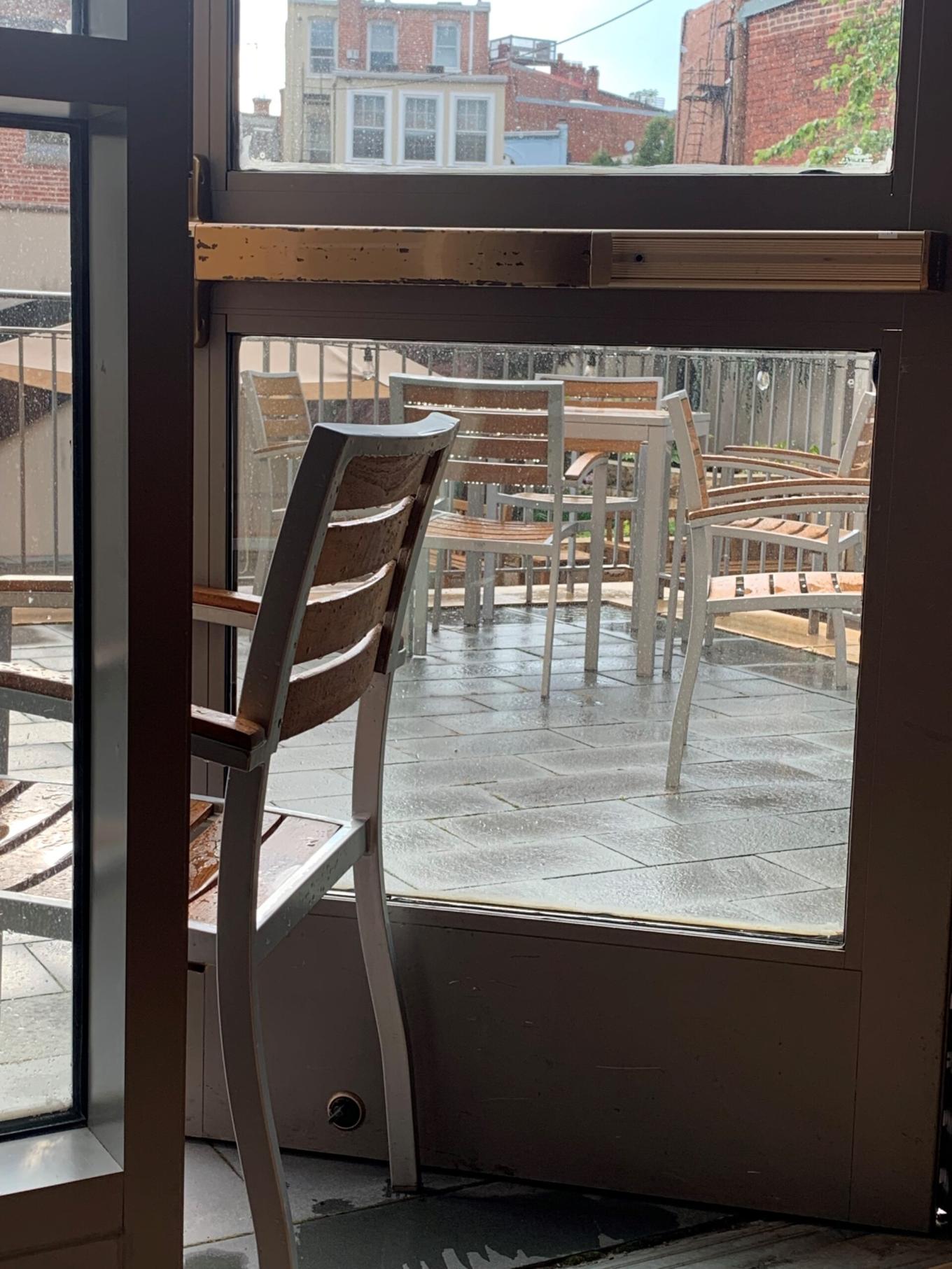
Watching the rain in the courtyard from the café
Workshop instructor Robert Hardies helped us envision our walk. Guided by a map of Dupont Circle, we would walk alone, slowly, for 20 minutes. We would “be present to ourselves and to the environment around us, attentive to beauty, gratitude, and delight.” During the silent walk, Rob suggested that we could return to this intention by repeating the phrase “Gratitude in every step.” As we walked slowly, we would try to stay in the present moment by paying attention to our senses. For instance, Rob advised, “If you notice that something attracts you visually, stop and look at it. Notice its color, shape, appearance. Close your eyes and create a mental snapshot of what you saw, so that you can remember it later. At the end of your walk, recall the moments of your walk that brought you joy. Give thanks for the opportunity to walk on and with the Earth by repeating ‘Gratitude in every step.’” After the meditative walk, participants expressed their responses with a variety of materials and methods in the museum’s art workshop. We painted with watercolor; printed with leaves; sketched with oil pastel, crayon, and color pencils; and collaged with painted papers. These expressions of gratitude would inspire projects—poetry and photography as well as mixed media compositions—to be presented at the fourth class.
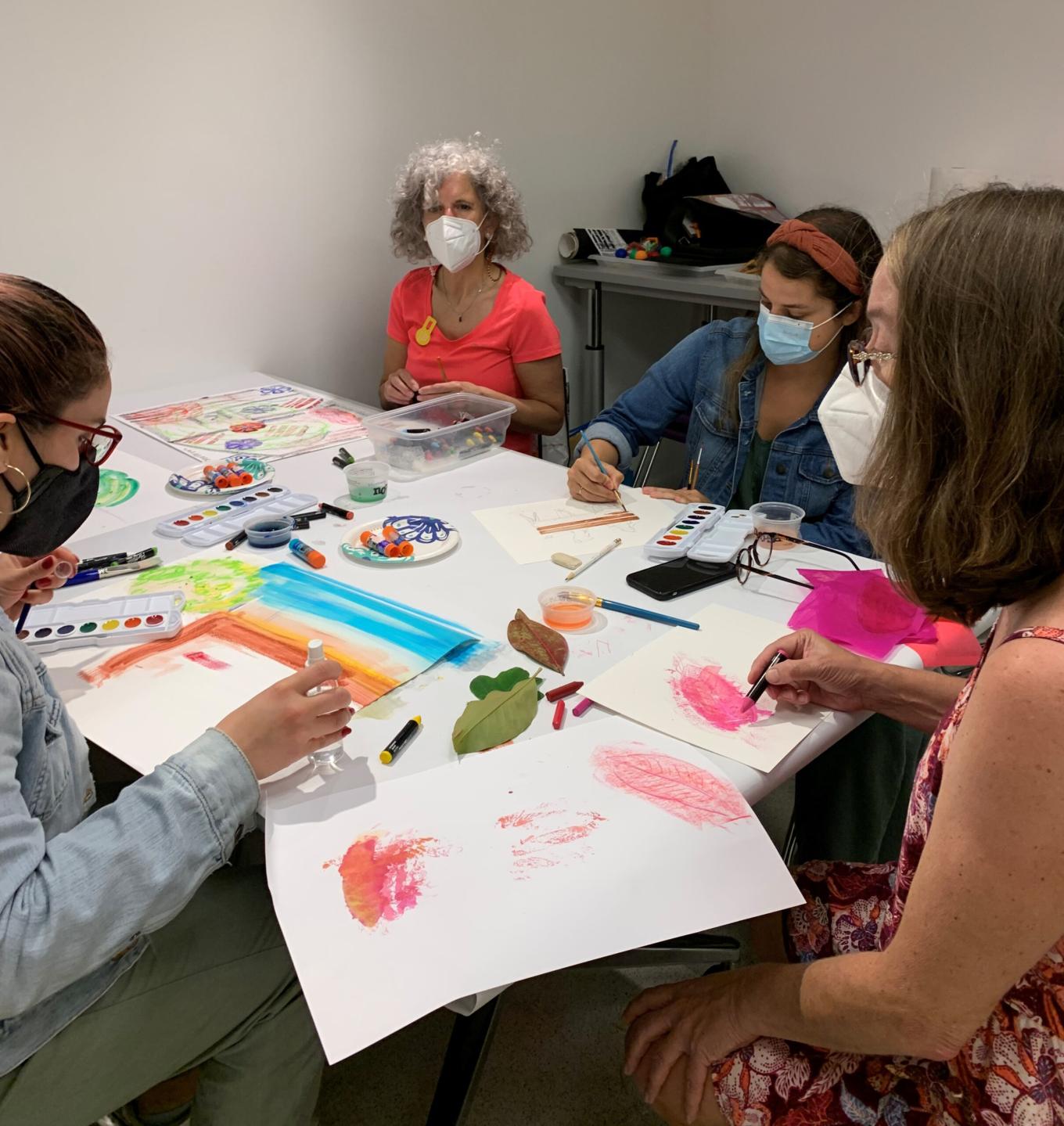
Creating artwork in the workshop
Rachel experimented with bleeding tissue paper, adhering it to the paper with water, and then pulling it off to reveal a print of pink pigment. Connecting this process to climate grief, she added stitching, sewing the wounds, showing the scars. She titled the piece Sutures because it “depicts the beauty of the natural world that is falling to pieces. If left alone, nature heals herself, but it’s uncertain whether too much damage has been done to save our Earth for future generations.”
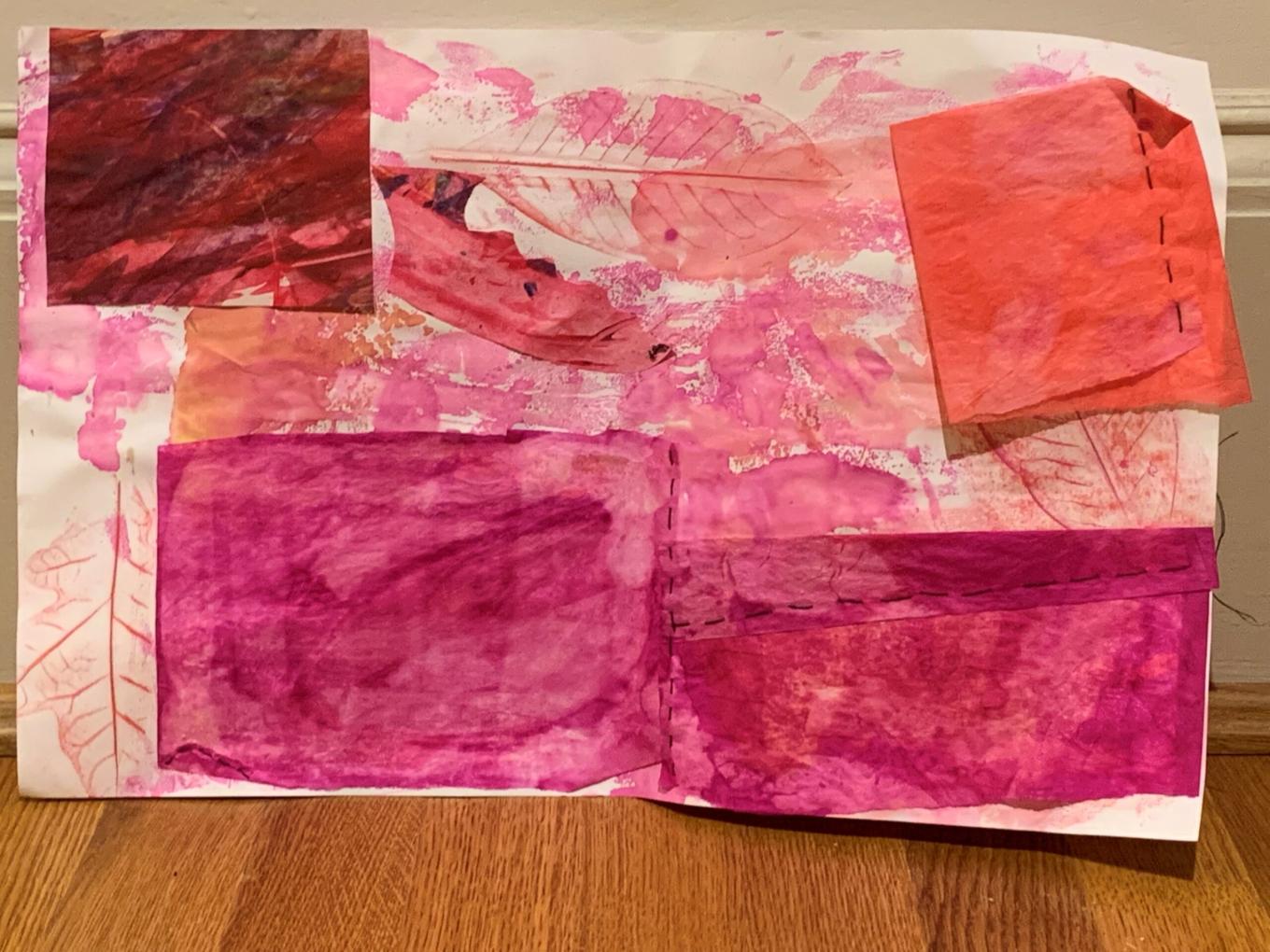
Rebecca's artwork using tissue paper
Joe saw his reflection in a puddle atop a drain cover. In this artful photo, he unites human with nature, brought together by the storm. Joe’s photo is also a nod to Sam Taylor-Johnson’s Self-Portrait as Tree, which inspired the meditation during the first class.
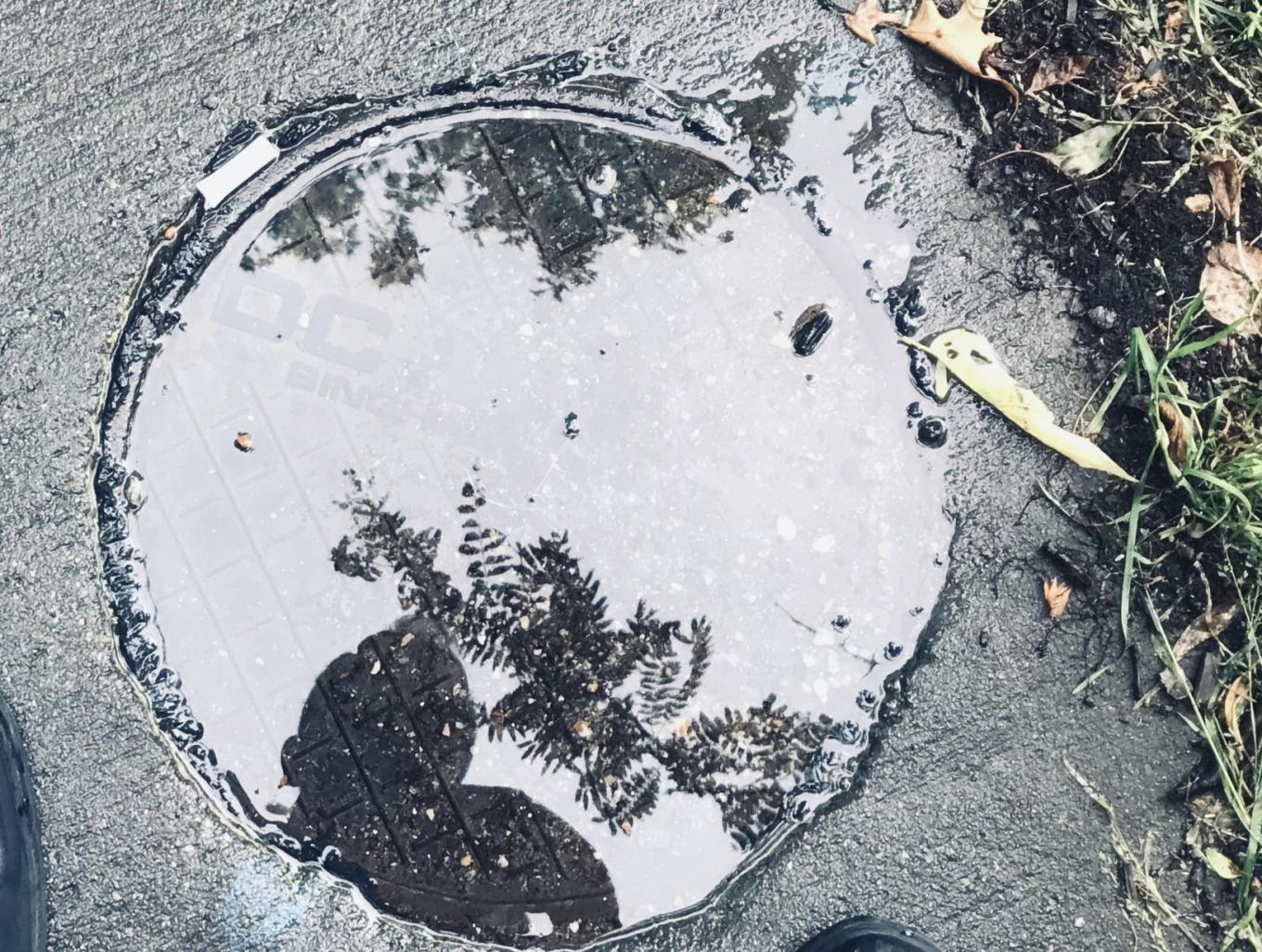
Workshop participant Joeâs self-portrait, taken during a rainy walk and inspired by Sam Taylor-Johnsonâs Self-Portrait as a Tree, 2000
Some participants commented on the ethereal quality of the droplets clinging to the chairs on the courtyard balcony; others noted their anthropomorphism, as Danielle does in her poem Of Course We Are: The rose smiles, her sisters join in Tiny droplets of rain, sparkling lights eyes of the Japanese maple invitingly / hello Up, through, around wrought iron gate wandering, twisting, turning vines embrace me join us your brothers, sisters, mothers fathers Rough, brownish, grey, black Oh the bark has softened Aged, sturdy, standing tall Arms, limbs reach/open/ Home, together, we are one Together. yes together The storm complicated the evening’s plans, and we were grateful for every step.
